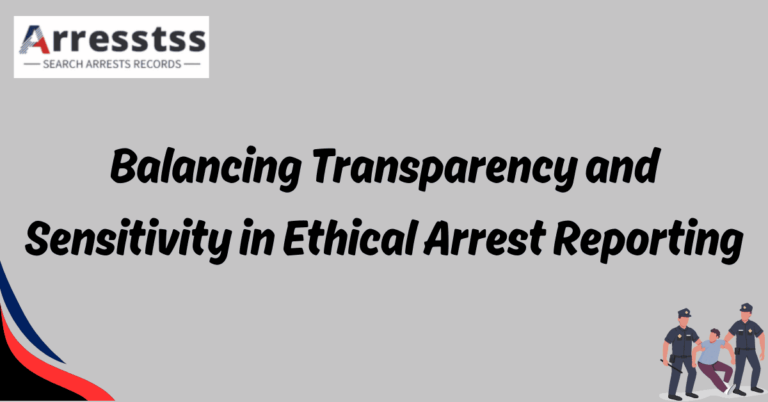Mugshots in the Digital Age: From Print to Online Platforms
Evolution of Mugshot Publication
In the digital age, the way we access and consume information has undergone a significant transformation. One particular area that has experienced a notable shift is the publication of mugshots. Mugshots, which were once primarily featured in print publications, have now found a new home on online platforms.
This transition from print to online has revolutionized the way we view and share mugshots, raising important questions about privacy, ethics, and the power of technology. With the advent of the internet, accessing mugshots has become easier than ever before. Online platforms now offer a vast database of mugshots, allowing users to search and view these records with just a few clicks.
Implications of Accessibility
The newfound accessibility of mugshots has both positive and negative implications. On one hand, it provides a valuable resource for law enforcement agencies and the general public to identify and track individuals involved in criminal activities. The ease of access can aid in public safety efforts and contribute to the swift apprehension of suspects.
However, on the other hand, this accessibility raises concerns about the potential misuse of information and its impact on an individual’s reputation and privacy. Mugshots are often associated with negative connotations, and their widespread availability can have long-lasting consequences for individuals, even if they are proven innocent or have completed their sentences.
An Ethical Dilemma
As mugshots increasingly migrate to online platforms, the issue of ethics comes to the forefront. Are these images being used solely for public safety purposes, or do they serve as a form of public shaming? While mugshots have traditionally been made public to some extent, the widespread availability of these images on the internet amplifies their potential for public humiliation.
This raises an important ethical dilemma. We must consider the balance between the public’s right to access information and an individual’s right to privacy and personal dignity. The digital age has brought this debate to the forefront, and it is crucial to engage in a thoughtful discussion about the role of mugshots in our society.
Privacy in the Digital Age
The digital age has challenged traditional notions of privacy, and mugshots serve as a prime example. Once confined to print publications with limited distribution, mugshots are now easily accessible to anyone with an internet connection. This raises concerns about the potential misuse of personal information and the lasting impact it can have on an individual’s life.
It is important to recognize that individuals featured in mugshots may have been falsely accused, have had charges dropped, or have successfully rehabilitated themselves. The public availability of their mugshots can perpetuate negative perceptions and hinder their ability to reintegrate into society. Privacy, in the context of mugshots, becomes a complex issue that requires careful consideration.
Implications on Society
The transition of mugshots from print to online platforms has broader implications for society as a whole. The ease of access to these records can influence public opinion and potentially contribute to a culture of judgment and stigma. It is essential to critically examine the impact of mugshots on individuals, communities, and the criminal justice system.
By understanding the implications and consequences of readily accessible mugshots, society can strive for a more balanced and empathetic approach to criminal justice. This examination should include discussions on the role of technology, the importance of rehabilitation, and the potential for reform in the way mugshots are published and used.
FAQ’s
In today’s digital era, the shift from print to online platforms for mugshots has been driven by the widespread accessibility and convenience offered by the internet. Online databases provide a vast repository of mugshots that can be easily searched and accessed with just a few clicks. This transition has allowed for quicker dissemination of information and has facilitated the tracking and identification of individuals involved in criminal activities.
The availability of mugshots on online platforms has several positive implications. Firstly, it serves as a valuable resource for law enforcement agencies to identify and track individuals who may pose a threat to public safety. It allows for a more efficient and effective means of apprehending criminals and preventing future crimes. Additionally, the general public can also benefit from accessing mugshots online as it promotes awareness and vigilance within the community.
While online accessibility of mugshots has its advantages, it also raises concerns about potential negative consequences. One primary concern is the potential misuse of this information, leading to public shaming and reputational damage. Even if an individual is proven innocent or has served their sentence, their mugshot may continue to circulate online, impacting their personal and professional life. There is also the risk of mistaken identity, where innocent individuals may be wrongly associated with criminal activities based on their resemblance to someone in a mugshot.
How do mugshots in the digital age raise ethical questions?
The widespread availability of mugshots on online platforms has brought ethics into question. While mugshots are primarily intended for public safety purposes, their online presence can also serve as a form of public shaming. It is important to consider the ethical implications of making these images easily accessible to the public, especially when they can have long-lasting consequences for individuals who may have already paid their dues to society.
How do mugshots moving online impact society?
The transition of mugshots from print to online platforms has had a significant impact on the way society views and interacts with this information. It has increased accessibility and convenience but also raised concerns about privacy, ethics, and the potential for misuse. As technology continues to advance, it becomes crucial to have a balanced discussion about the role of mugshots in the digital age and the implications they have on individuals and society as a whole.







